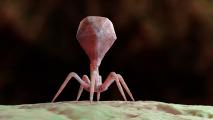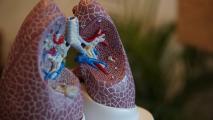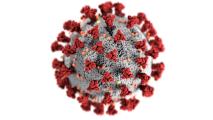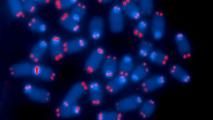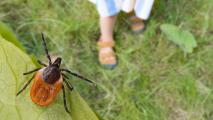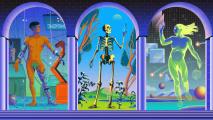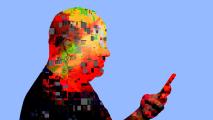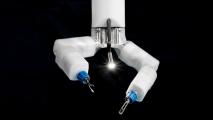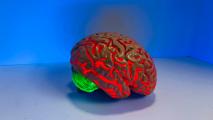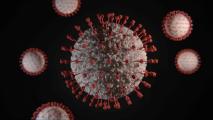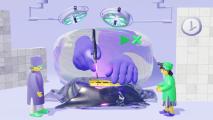
Biotech
Human history has been all but defined by death and disease, plague and pandemic. Advancements in 20th century medicine changed all of that. Now advancements in 21st century medicine promise to go even further. Could we bring about an end to disease? Reverse aging? Give hearing to the deaf and sight to the blind? The answer may be yes. And soon.
More
Viruses may one day treat inflammatory bowel disease
Researchers have created a cocktail of viruses that may be able to treat inflammatory bowel diseases like Crohn’s.
Nanoparticle sensor can distinguish between viral and bacterial pneumonia
MIT researchers have designed a sensor that can distinguish between viral and bacterial pneumonia infections.
Yale study finds low levels of a hormone may predict long COVID
Yale and Icahn School of Medicine researchers may have found biomarkers for identifying long COVID.
Cells become zombies when the ends of their chromosomes are damaged
Damage to the ends of the chromosomes can create “zombie cells” that are still alive but can’t function, researchers say.
Only human Lyme vaccine in development enters phase 3 trial
Pfizer and French biotech Valneva have announced a phase 3 clinical trial testing the human Lyme vaccine.
Half of all vaccines are wasted. A gel could save them.
A new hydrogel that wraps around heat-sensitive molecules could help prevent vaccine waste by keeping them viable at higher temperatures.
Transhumanism: Savior of humanity or false prophecy?
While many of the technologies upon which transhumanists base their dream are real and world-changing, they have major limitations.
Smartphones might actually be improving your memory
Rather than causing “digital dementia,” storing important information in a digital device can actually improve memory.
NASA is sending a robot surgeon to the ISS (Updated)
A MIRA surgical robot is heading to the ISS in 2024 so developers can test its potential to help astronauts survive medical emergencies.
What ever happened to the first cryogenically frozen humans?
For decades, people have arranged to freeze their bodies after death, dreaming of resurrection by advanced future medicine.
A new drug could repair stroke damage to memory and movement
A new drug can repair stroke damage in mice, improving memory and motor skills. If it works in humans, it could lead to a paradigm shift in stroke treatment.
Yale team partially revives dead pig organs an hour after death
Yale’s OrganEx technology has been used to partially revive the organs of dead pigs an hour after their hearts stopped beating.
Long COVID-19 and chronic conditions after viral infections may stem from an overactive immune response
Understanding the immunological mechanisms underlying long COVID-19 is the first step to addressing a quickly worsening public health problem.
The Singularity: When will we all become super-humans?
Are we really only a moment away from “The Singularity,” a technological epoch that will usher in a new era in human evolution?
Why don’t surgeons train like fighter pilots? Now some do.
Using AI and analysis, Theator is helping surgeons improve how pilots and pro athletes do: by going to the tape.
The Biden administration is preparing for legal psychedelics within two years
The Biden administration’s Department of Health and Human Services has sent a memo supportive of psychedelic therapies. What does that mean for the field?
ADHD drugs might also treat Alzheimer’s disease
Scientists reviewed 40 years of clinical studies that assessed the effects of NA-targeting drugs, such as certain ADHD drugs, on Alzheimer’s.
Jeff Bezos is looking to defy death – this is what we know about the science of aging
Will Bezos’s company succeed in extending the human lifespan? Maybe. But we can all benefit from studying aging.
A cheap nasal spray cuts COVID-19 risk by 62%
A low-cost nasal spray co-developed by Oxford researchers could be the next powerful weapon against COVID-19.
How natural “short sleepers” thrive on 4 hours of sleep per night
Natural “short sleepers” thrive on only four to six hours of sleep per night. Could their genetics explain why?
Get inspired with the most innovative stories shaping the world around us.













